The Bevza sheaf that spiked the Ukrainian resistance
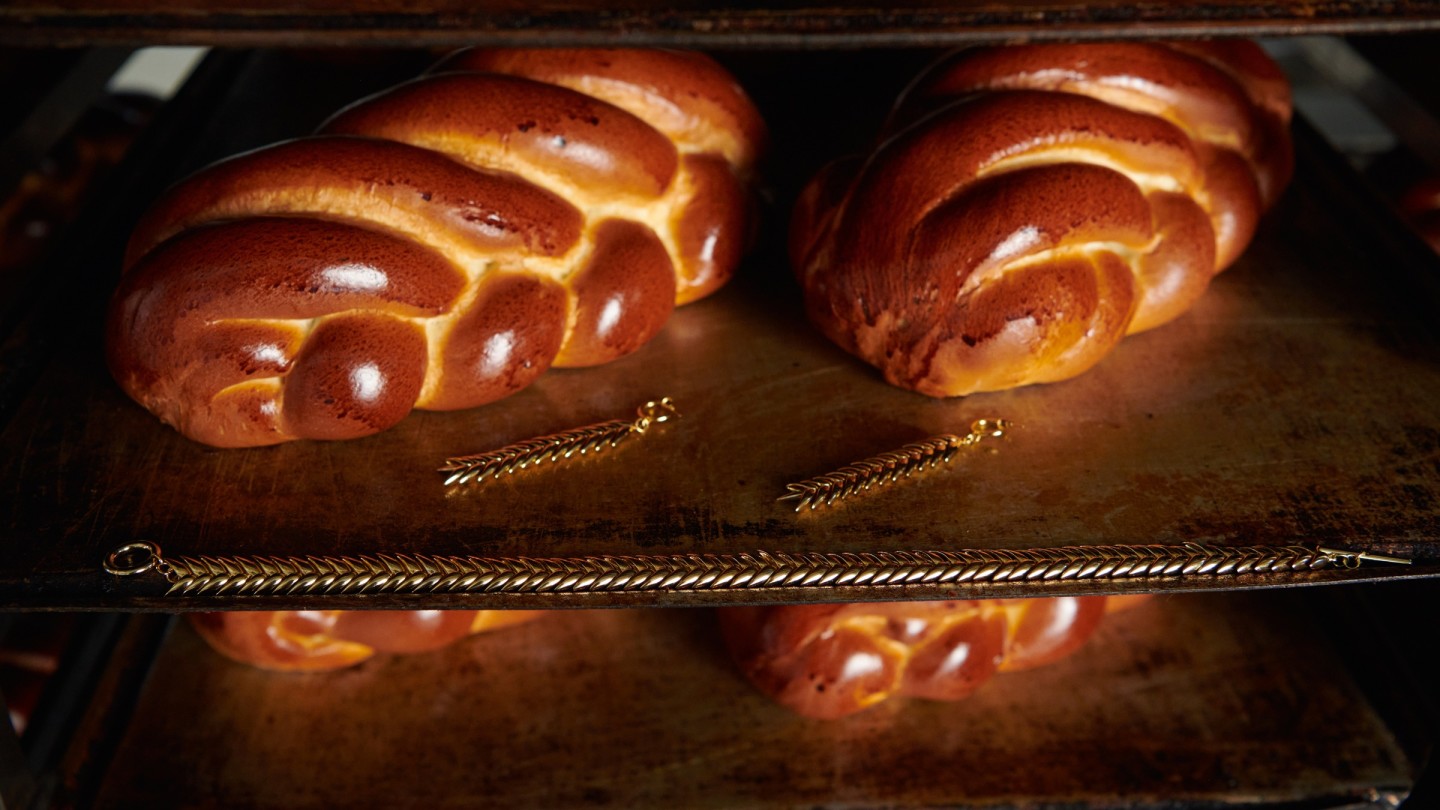
Roula Khalaf, Editor of the FT, selects her favourite stories in this weekly newsletter.
In Ukrainian culture, a spikelet of wheat is a sacred thing. An ancient symbol of fertility and harvest, it represents the county’s longstanding role as the breadbasket of Europe and plays an important part in many of its folk customs. “Traditionally, you always bring bread with you to a wedding or a birthday, and there is an old proverb that says bread is the head of everything,” says Svitlana Bevza, speaking from her studio in Kyiv, where she is finalising her latest collection. “Metaphorically, bread gives life, and it gave life to all our team. It saved us.”
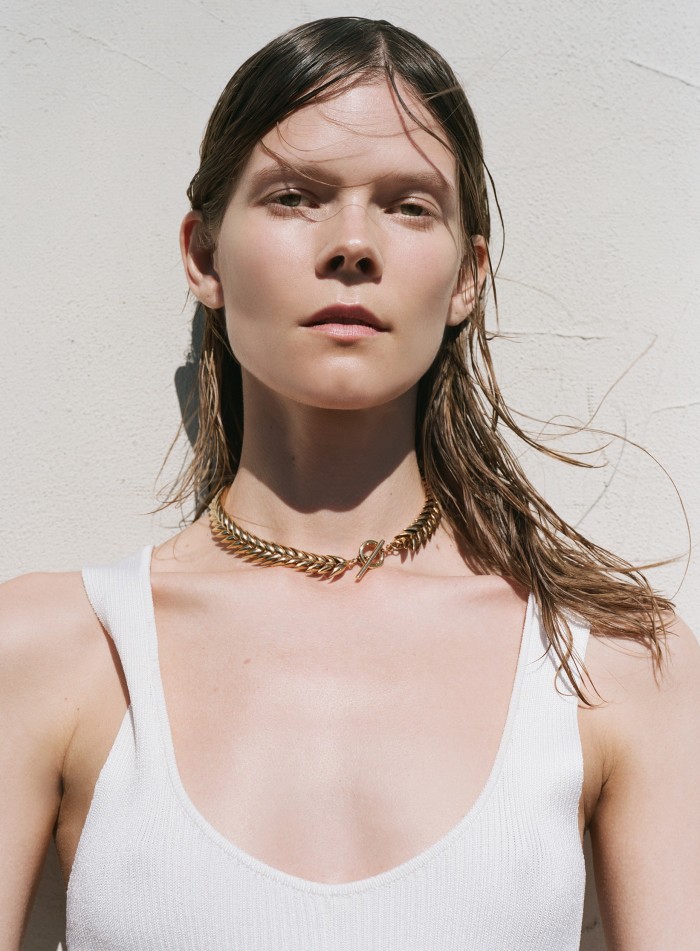
The Ukrainian fashion designer, whose namesake womenswear label is one of the largest and best-known in Kyiv and has been worn by celebrities including Gigi Hadid, Emily Ratajkowski and Sophie Turner (who donned a white jumpsuit by the brand for her Vegas wedding), is referring to her hallmark Spikelet jewellery. Since Russia invaded Ukraine last February, the wheat-shaped pieces have seen a 150 per cent uptick in sales and helped to keep her business afloat. “At first, it was the women who left the country and just needed something symbolic with them, but what’s really surprised me is that the demand in Ukraine is growing,” she says. “I mean, they’re bombing us and yet women are still buying spikelets.”
First introduced in 2019, the signature gold-plated-brass and silver earrings and choker necklace have become a symbol of resistance among Ukrainians and women in the diaspora, and a boon for the brand, accounting for a third of Bevza’s sales. “The spikelets were a big push in helping us proceed with production and the other processes,” says Bevza, who also introduced a blackened version of the spikelet necklace last year, symbolising Ukraine’s burned wheat fields. “Now we are secure, we can develop new lines and work on new products.” Among those is a line of sculptural leather handbags, launching this month, that feature polished gold hardware inspired by the geometric wheat spikelet logos of Ukrainian bread factories, as well as more spikelet styles including bracelets, pendants and cuffs. “My dream is for these pieces to become wardrobe staples and classics associated with Ukraine,” she says.
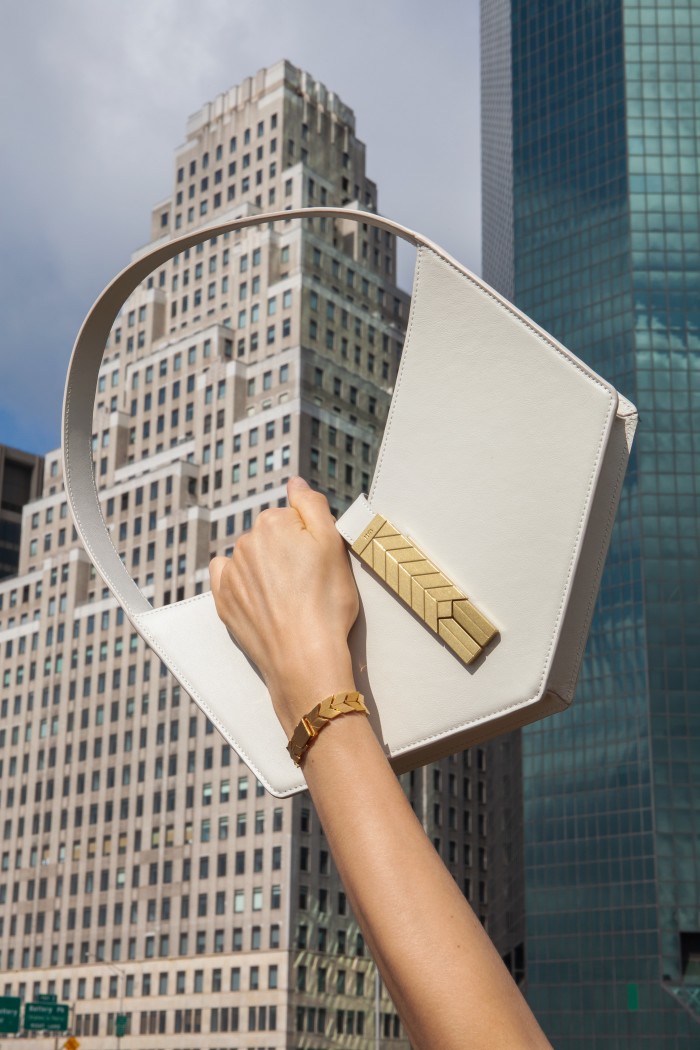
Celebrating Ukrainian heritage has always been a central tenet of Bevza’s brand, whose contemporary, minimalist designs are infused with traditional motifs and influences – from the “plakhta” draped skirts inspired by those worn by women when harvesting wheat, and tailored jackets with wide sleeves that reference traditional “sorochka” blouses, to maxi dresses whose braided fringing mimics the movement of wheat spikelets – though Bevza notes that the surge of patriotism and interest in Ukraine has resulted in a newfound appreciation. “When I first started, there was this strong stereotype that there was no Ukrainian fashion,” says Bevza, who founded the label in 2006 and has become a regular fixture at New York Fashion Week. “Now people love to wear Ukrainian brands in Ukraine. They’re proud to wear them.”
For Gaëlle Drevet, whose The Frankie Shop has stocked the label since 2020, it’s Bevza’s refined aesthetic and craftsmanship that sets the brand apart. “Bevza’s collections are always elegant and timeless, and the fact that it is all made in Ukraine is amazing,” she says. “We tend to sell out very quickly, especially of the spikelet-themed jewellery.”
In brief
More than 9,600 civilians, including 554 children, have been killed since Russia invaded Ukraine on 24 February 2022
Before the war, Ukraine produced more than 10 per cent of the wheat, barley and corn sold worldwide, and was the world’s biggest exporter of sunflower oil
There are nearly 5.1 million internally displaced people in Ukraine and more than 6.2 million refugees worldwide
Though Bevza has been steadfast in her commitment to keeping the production of her ready-to-wear and jewellery in Ukraine, it hasn’t been without challenges. Last March, the jewellery factory where her spikelets are produced was destroyed by shelling, meaning she had to start the patterns from scratch, and many of the men who had been working on its production were drafted into the army, requiring them to find and train new artisans. “This past year and a half has been a rollercoaster,” says Bevza, who travels between Kyiv and London – where she currently lives with her two children – to work on the collections. “It’s not easy for my team but I’m grateful that many of them have worked with me for years,” she says. “I feel very proud of my responsibility and of this duty of storytelling.”
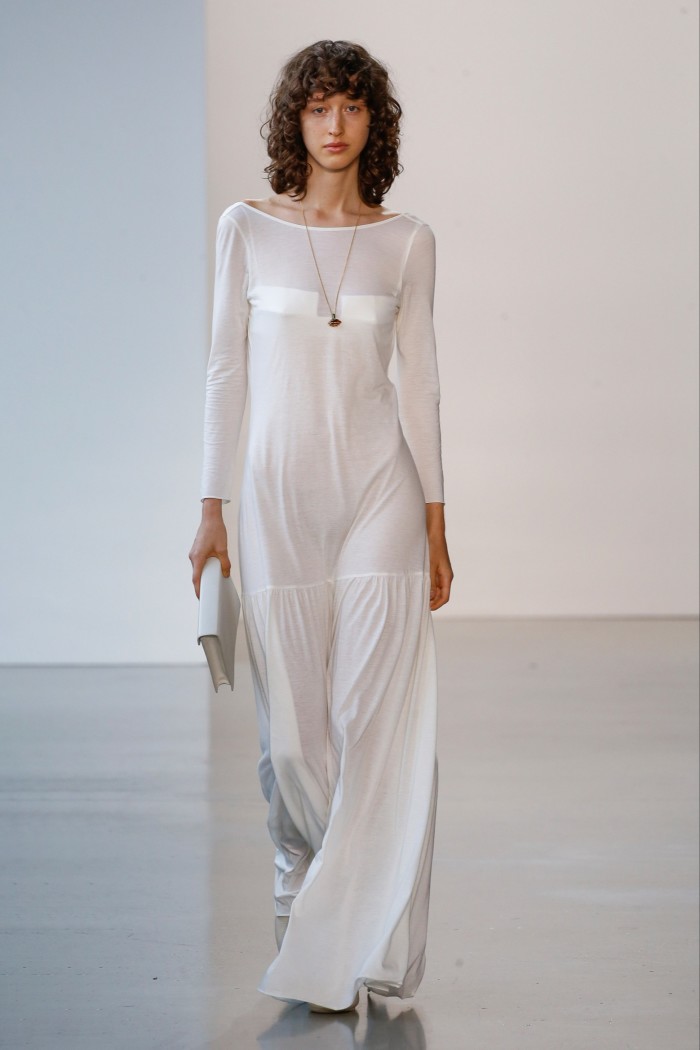
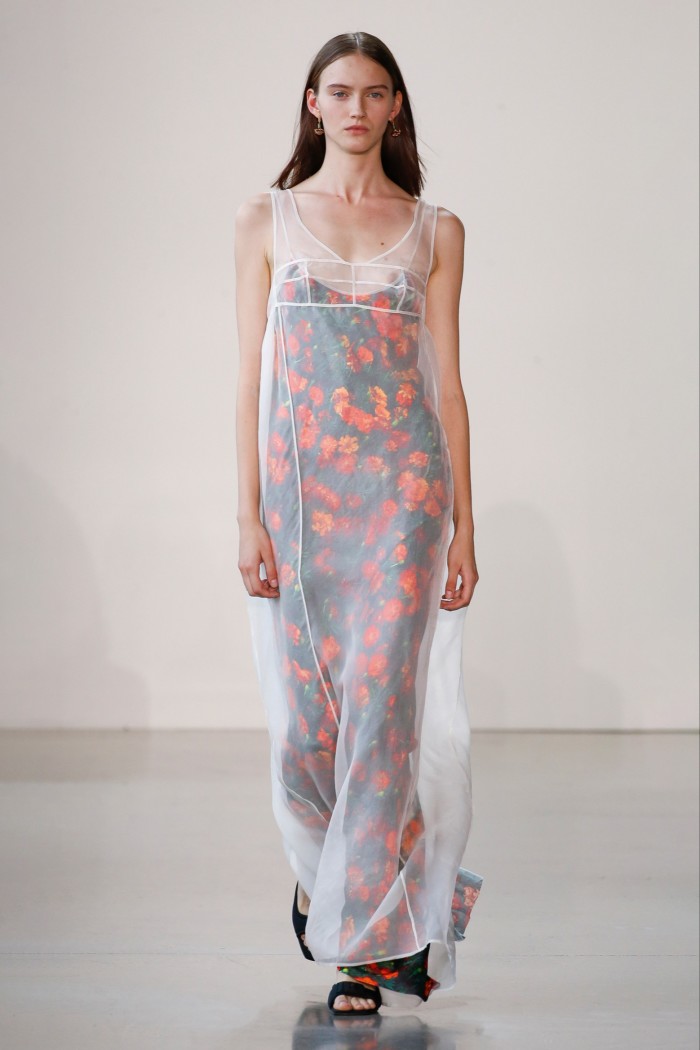
The designer sees fashion, and her role in spreading hope and beauty, as more important than ever. For her SS24 collection, Bevza – a keen gardener – was inspired by marigolds, which appeared on printed camisoles and on shoes made out of fiery orange petals. A flower that grows in abundance in Ukraine, it is seen as a symbol of optimism and renewal, though Bevza’s connection to it runs even deeper. “Marigolds were my grandfather’s favourite flowers, and after he died, I used to plant the seeds he gave me on my balcony every year for 20 years,” she says.
Her garden was one of the things she particularly missed when she had to flee Kyiv. “Gardening is a very big hobby of mine. I’m an introvert and I don’t like to party, so that is what gives me energy,” she says. She sees the beauty and resilience of the marigold as a metaphor for what Ukraine is going through. “In these times, it’s very important that our nation goes through some kind of revival,” she says. “I want the flowers to sprout everywhere.”
Four more Ukrainian causes to support
Guzema Fine Jewelry
Founded in 2016 by former journalist and TV presenter Valeria Guzema, the Kyiv-based jewellery brand’s delicate, handcrafted pieces have been worn by celebrities including Milla Jovovich and Ukraine’s First Lady Olena Zelenska. Last April, Guzema launched its Freedom collection – inspired by the colours of the Ukrainian flag – and all profits from sales go towards its charity, the Guzema Foundation, which supports the Ukrainian army and provides medical treatment for those in need. guzema.com
Gushka Wool
Nestled in the Carpathian Mountains in Ukraine, the village of Yavoriv is known for its centuries-old weaving heritage and lizhnyk – a handspun, patterned woollen rug traditionally used as a carpet or bedcover. Gushka, whose workshop is based in the nearby region of Kosiv, aims to preserve this ancient craft by making contemporary rugs and carpets from pure Carpathian wool, using traditional wooden looms and techniques passed down through generations. gushka.world
Solo for Diamonds
Using only lab-grown diamonds made in a Ukrainian diamond plant, Julia Kusher’s sustainable fine jewellery brand Solo For Diamonds was born in 2018 out of a desire to make diamonds more ethical and affordable. One hundred per cent of profits from the sale of her Pure Freedom collection – which features yellow and blue diamond rings – goes directly to the Help Ukraine Centre Fund, which supports those affected by the war. solofordiamonds.com
Gunia Project
Working with 120 artisans across 12 different regions of Ukraine, Gunia Project was created in 2017 with the mission of preserving Ukraine’s handmade crafts and celebrating its cultural heritage and folklore. Its collections encompass ceramics, glassware and clothing adorned with religious iconography and motifs such as doves and saints that are inspired by traditional Ukrainian ethnic culture. guniaproject.com
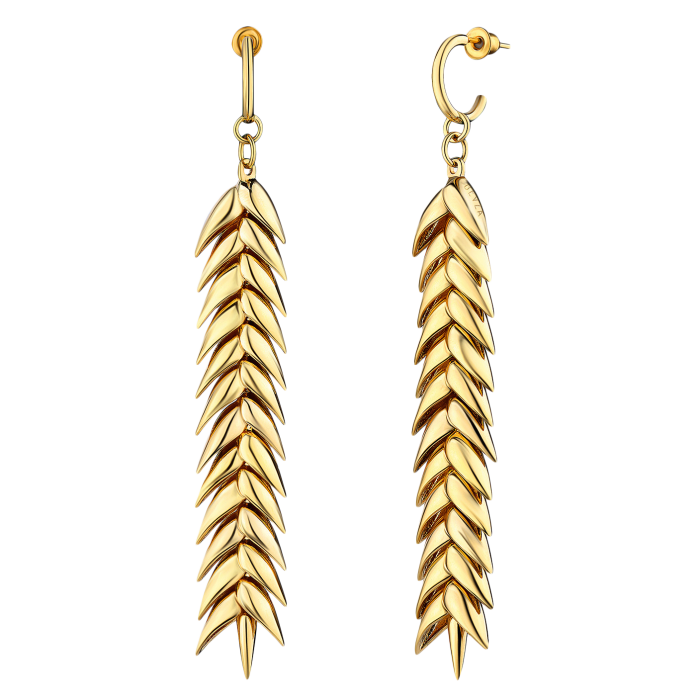
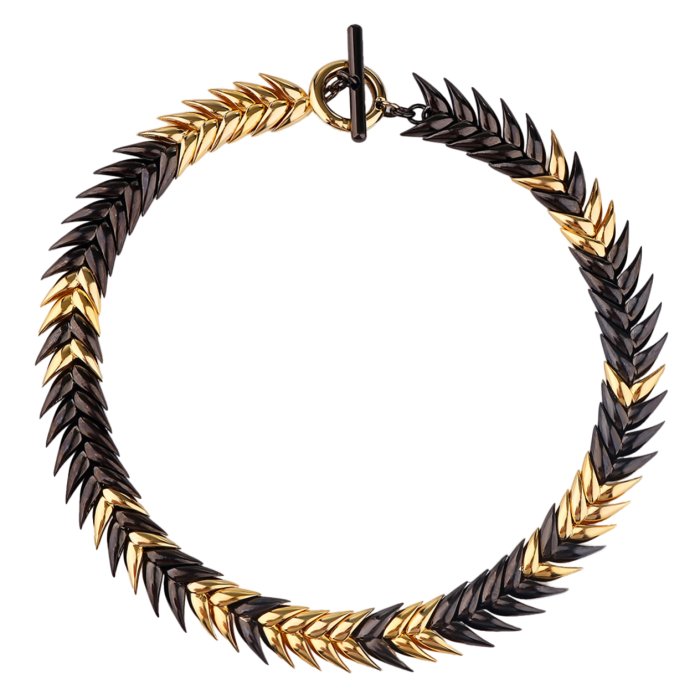
Comments